Author: Thomas Edmund
Weekly Writing Roundup: 27.4.2024
I’ve got a cold so I think we’re just doing a silly week.
Ironically now my algorithm (does anyone else have the worst time spelling that word?!?) at least the next one is tangentially about writing

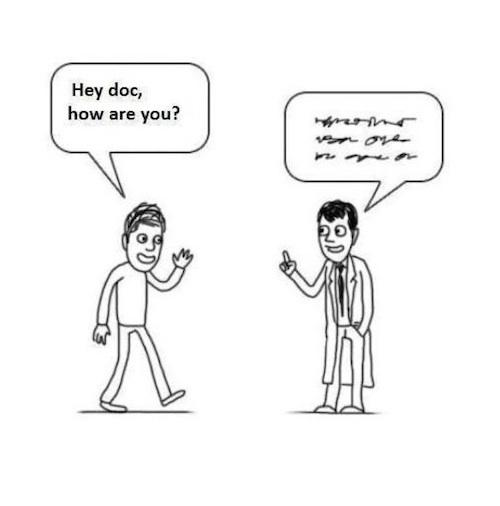
A lot of people tell me I should have been a Doctor



I really like both of these right now. X-men is giving me both nostalgia trips AND new X-men material. Invincible is a bit of an acquired taste in my opinion, in that its super violent and has a TONNE of emotional whiplash. Which I weirdly enjoy
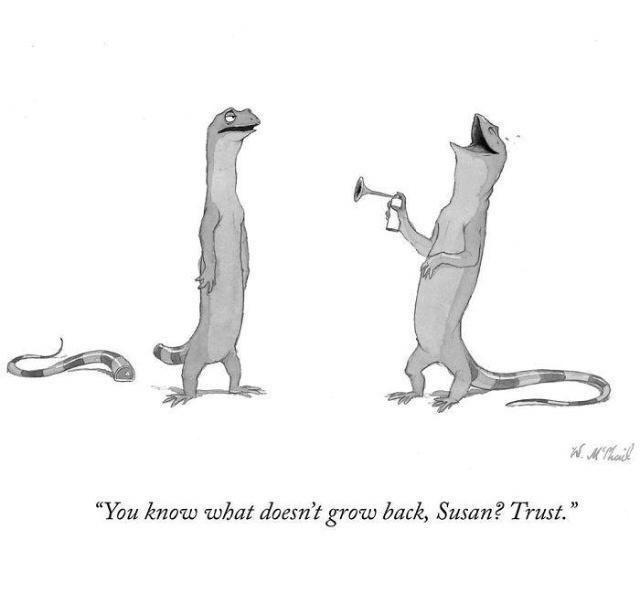





You’re alive as long as people remember your name (and bad copper)


This really scratches a nostalgic itch #QuestforGlory #Sierra
A Deep Dive “Inside”
Hope you’re not hydrophobic (well thalassophobia), claustrophobic, or huddleophobic
I originally played this game over the 2020 lockdown, basically straight after working through Playdead’s previous indie hit Limbo (another very dark game with deep story/ludo-narrative) but still find myself sometimes thinking about it still. I’ve attached a couple of theory links but wanted a chance to delve and discuss myself. [while searching this I found a concept I hadn’t heard before: ludonarrative dissonance where the gameplay contradicts the overt plot]
The Context
Inside is an almost hilariously simply game in terms of mechanics. You control (more on that later) a young boy, your only real goal is to move from right to left. While, indeed, there are hazards to prevent this, and puzzles to be solved – they are all technically simple, thankfully devoid of moonlogic (albeit some very quirky examples of in-game logic) – there are also minimal timing/precision elements – and finally each section is contained so your solutions are typically limited to what’s right in front of you. The majority of the puzzles involve confronting functional fixedness rather than overly complex or obtuse mechanics – for example in one section you need to push a button and swim through a door, all before a ‘siren’ enemy(?) catches you. If you simply push the open door button and flee the siren is able to follow you. However if you plan your swimming and tap the button again to close the door, you have enough time to zip through before the siren.
On that note the secrets in Inside are funnily enough hard yet basic at the same time. They almost exclusively on moving LEFT at the odd times throughout the game and solving a few tricky puzzles, but the creators of this game are so good at misdirection its incredibly easy to miss opportunities to go left – for another example in the very puzzle mentioned above, one of the secrets is hidden to the left of this whole arrangement, but its so easy to get so focused on not being drowned by a siren while you race through a door its easily missed.
While it sounds like I’m maybe negging the simplicity of Inside, its quite the opposite. this sort of gameplay which is more about immersion and enhancing the story is something I love dearly about gaming. Even though Inside is technically simple, its emotively difficult. There were genuinely parts that were challenging to complete due to fear and disturbia!
A Quick Look Inside
The story begins with a young boy appearing out of some bushes, into a very dark and very ominous forest. The place is ridden with suss looking vans, trucks, dogs – and the overt explanation is that the boy is trying to escape. After all, if you’re caught then you are either mauled or sedated. There isn’t any dialogue or written narrative, we have to make our assumptions based on what is shown to us.
One detail that adds a ? a later on provides context that this situation isn’t an escape, is the presence of strange chambers throughout the forest. They look something like cryogenic containers and have a distinctive orange light about them (a motif throughout the game). We don’t get to see inside any of the chambers nor do we get to see what the relationship with the evil guys is – i.e. is it their technology, or something they are pillaging or attacking?
After fleeing the scaries the we arrive on a dilapidated farm and we get a sequence that is almost always mentioned in discussing this game, and often mentioned in WTF moments of video games

After taking advantage of the friendliness of some baby chicks (more on that later) you are attacked by a rather stocky pig that losing its aggressiveness after you pull a gloopy worm out of its flank (ew). Immediately after we are introduced to one of the more original and significant mechanics of Inside. A (glowing orange – note: motif) helmet that allows the boy to control a nearby group of ‘husks.’ The husks present as zombiefed human beings – its not clear if they are are lab grown homunculus servants or lobotomized regular folk – but both are quite disturbing. When these husks are not under control they simply slouch and remain inactive.
Once you work through the Farm you enter the City, a level that if it wasn’t for Playdead’s ability to keep escalating the horror I would say is the most horrific part. There is a lot to potentially discuss about the City, some of the key events are:
- You see ‘exec’ types supervising long lines of ‘Husks’ before I said it wasn’t clear if Husks were lab grown or all natural, this section implies they are essentially ordinary working class folks ‘processed’ in some way
- The exces are definitely co-modifying and ultilizing the Husks in some way – literally shipping them in containers
- Most disturbingly there are children watching these proceedings, one woman holds a baby, another man holds an older boy’s hand while they watch the Husks move (again Playdead shows itself to be a master of visual storytelling, could there be a more powerful way to show dehumanization?)
Perhaps the most powerful and intriguing part of the City is a puzzle where you accidently find yourself in a long line of Husks, and have to prove you ARE also one of them (major irony and details on this later) by slouching and stomping along the conveyer-like line of Husks, engaging in the same test actions they are put through.
As you escape The City you enter a sort of Underground system, I’m going to skip over a couple of sections here as I don’t think you need all the deats – however there are some vital moments that come up.
- This a little strange – you encounter a submarine pod and sneak aboard, to continue your ever “right” quest. This is where you perhaps get a hint that this boy might not just be escaping. While it could be argued that the boy couldn’t avoid the nearby Farm and City to escape his pursuers, now it feels like he’s actually trying to get somewhere
- Along with the sub you also encounter your first ‘Siren’ its interesting, almost all commentary refers to these creatures as young girls, which I guess is coded in their long hair and mermaid vibes, however I think they are clones/offshoots of the protagonist boy. Anyway the Siren’s are terrifying, they exist purely underwater and if ever they get their hands on the boy he ded
From the underwater adventure, the boy journeys through a number of frightening looking experimental settings. An environ something like a synthetic forest with more of the pods from the beginning, more husks left drifting underwater, moments of zero gravity and just general huh WTF?
This brings us to one of the (up to this point at least) more frightening moment of the game. As the boy climbs a chain (notably into a patch of very bright angelic looking light) the platform suddenly breaks and the boy is thrown deep into the water to be grabbed by a Siren. However, unlike other moments the game doesn’t ‘over’ we see the Siren drag the boy ever deeper, a puff of air escapes the boy and he goes still. But again the game doesn’t end, the Siren plugs something into the boy that looks like a mix of the mind control hats and the slug in the pig (ew).
The boy is left in the bottom of the water, and effectively returns to life, not only able to breath underwater now but also controlling Husks without the need of a hat.
Speeding towards the end how we continue to the ‘right’ do find a (you guess it) strange setting. A massive science office and observatory chamber – and many people rushing to observe the chamber. Stranger still is that the people here are not attacking the boy, in fact they look at him in confusion. The game cheekily does not show us what’s in the chamber, piquing our own curiosity along with the boy’s.
Prepare yourself for the final WTF because the next few sections do not disappoint. After solving a few more puzzle you get dragged with the observatory (did I mention its filled with water?)[also naked] and come face-to-face with the Huddle.

Words cannot really express how I first felt seeing this monstrosity. The huddle is effectively a blob of human flesh, with any number of arms and legs twisting out of its bulk. It reminded of this image from the walls of Doom II

Grossing you out further The Huddle doesn’t actually have any heads or faces, however as you discover later it does make a lot of groaning and moaning vocals particularly when hurt nightmarishly suggesting some sort of experience for the beings trapped within.
Edit: I had to update this post because I did a quick replay to check out what it looked like to not crush the “CEO” (its not that interesting he just shuffles away and cowers and you can smash through the window without the satisfaction of splattering one of the 1%) and found that heads and shoulders do stick out of the huddle, not just arms and leggies…
In case this isn’t already undermining your sanity, the next moments include the boy attempting to remove some attachments and in a vomit inducing first twist: gets pulling into the Huddle, and in a second twist WE become the Huddle itself.
The Sense of an Ending
I just wanted to highlight this section as there is a lot of ambiguity and potential discussion about what happens next. After becoming the Huddle you got on what appears to be an unexpected and violent rampage through the facility you emerged from. You directly squash one exec (who in the game code is referred to as CEO) and many other scientists appear injured or dead from your sludging around.
However throughout this ‘rampage’ multiple scientists appear to help you, you also end up in a colosseum like viewing chamber suggesting the facility is still in full control. Eventually you bust out through a wooden wall, take a massive tumble down a wooded cliff, and come to rest next to a waterway, the Sun(?) light glinting off the water ripples and your beautiful beige doughy skin.
Ending 1
So even with that sequence under our belt there are still many questions. The game of first brush almost reads as an unlikely rescue mission, a boy in trying to escape the dystopia ends up helping the most unlikely of fellow prisoners. A quick rethink makes us question why did the boy travel ‘right’ so much anyway, why did absorbing this boy in particular free the Huddle? Initial analysis suggests the Huddle had some sort of power to recruit the boy and summon him. This would also explain the Siren ‘helping’ if it to was under the Huddle’s influence.
But what about the scientists being excited and interested by the events? Why don’t they stop the boy, why do they help the Huddle? A nice explanation might be the scientists are perhaps moral actors however the evidence is pointing elsewhere. An interesting and revealing moment in a smaller diorama that looks exactly like the final scene is found during the Huddle’s rampage, this tells us that the whole sequence is prepared for if not planned.
Its not clear exactly what is planned, some suggestions I’ve read are that its a 1984-esque extra layer of control – that in order to keep the powerful Huddle under wraps it needs to believe is has the potential to escape, so those in charge allow this ‘game’ to happen.
Another explanation is that is part of increasing the Huddle’s power and ability. By growing a certain kind of powerful Husk ‘boys’ they can learn skills and overcome obstacles to be finally absorbed into the Huddle to increase its overall power. This fits with the Ludo-narrative that once the boy get absorbed the Huddle is able to rip itself out of its containment. This may even be how the Huddle was developed in the first place, gradually training and absorbing ‘boys’ until a grotesque mass was formed.
Ending part 2
A secret ending is available Inside which takes the narrative into The Fourth Wall (IMHO). if you destroy all the secret generators throughout the game then you have an option of entering a secret chamber, nearby to the first level of the game. Within this you find a computer console setup (see what I mean re: 4th wall) with a mind control helmet hanging above it.
If you pull out the power chords to the setup the boy falls backwards, and rather than standing, returns to the distinctive ‘hunch’ of the Husks you encounter.
This adds some certainty to any theory about the boy’s identity, he is definitely a Husk and definitely being controlled by someone (it’s you).
Theory and Practice
For those of you who know me I really love the angry angst of Folding Ideas getting annoyed at people theorycrafting the context of a movie when its supposed to be engaged with metaphorically
What’s I love about Inside is that it absolutely lends itself to BOTH types of analysis. There is most definitely space for the overt story, and the allegorical parts.
In terms of the context I agree with the assessment that basically the whole thing is all part of the ‘plan’ (perhaps not the CEO getting crushed). We see weird chambers in the beginning forest that are also present in a small simulated forest in the labs. It makes so other sense that the science team would be so excited for the final events and help Huddles escape. A few extra point that might help smooth some questions.
- I think the reason the earlier ‘law enforcement’ machines and dogs are allowed to kill the boy is that they are of a lower status and effectively not told about the overall experiment. There job is to manage the area and kill anything that isn’t a Husk that moves
- The Siren’s in my opinion are other ‘Boys’ they have been left in the water after perhaps failing their task. Their hair is longer and they are naked because they have been living underwater for some time.
- The Siren implants the worm into the Boy at a midpoint because as we’ve seen the worm can make creatures aggressive – they also don’t want him too powerful until he is ‘Inside’ the facility. If my theory is correct then the Siren’s may even be controlled by others do follow this plan and/or by leaving the worm implanting technology underwater in the hands of a Siren this protects others from being infected with it.
My theory is that the plan is for the next stage of Huddle development. It’s unclear exactly what the organisation/government/group is able to do with the Huddle, e.g. does it have the power to turn people into Husks? Control the Husks remotely? Generally just terrify everyone so much with body horror they’ll do as they are told?? But I figure the desire to grow ‘Boys’ in the woods and have them travel Inside to be absorbed by the Huddle which is tend contained in a fake beach suggests that for whatever reason there is something to gain from this – and if not just a strategy to trick the Huddle into believing its escaped – my stance is that its the next ‘chamber’ the Huddle will be kept in.
Bruh its SUBTEXT
So what about subtext. I really liked the linked theory that Inside represented Cancer, I don’t really agree, but I love the analysis and attention to deal.
My theory is that Inside is about the absurdity of possessing an individual identity within a collective society. Its not just about control, but how individuality is influenced by the collective. The Boy begins as an independent agent, but he is ever driven “Inside” further and further ‘right’ (remember how I mentioned earlier that all the secrets are left, this isn’t a political statement LOL) Despite initially trying to escape the Boy eventually has to compromise and at least pretend to conform – remember that task mentioned earlier where the Boy has to pretend to be a Husk in a line-up?). He also uses the mind control devices, even takes advantage of the happy, vulnerable baby chickens who are just happy to see him and follow him.
So to even be ‘free’ the Boy has to control and influence others – this is taken to the (almost) most extreme when he has to gather dozens of Husks to stand on a platform to open his next door. The context might be that the scientists need the Boy to keep learning and building skills to improve the Huddle, but my theory of subtext is the Boy is increasingly and arbitrarily controlling others, the very thing he was trying to escape. Even as an individual he ends up creating a collective anyway.
By trying to free the Huddle and getting absorbing himself, the contradictory absurdity of maintain one’s identity within society is shown in horrifying detail. The individual, tries to free the (now most) extreme example of a collective, a seething mass of humanity. He is literally absorbed into the collective by the very act of trying to free it. His individuality is retained only by controlling the masses merely to discover that the collective’s ‘escape’ is just other slightly more individual people’s control over the collective. Although even though the experiment is controlled the CEO (another individual attempting to control collectives) is potentially flattened. Another example of an individual even when powerful and apparently controlling the collective, instead being squashed by it.
The only way to escape this absurd contradiction is to ‘unplug’ to de-activate oneself and no longer ‘play’ the game. The game has no alternatives (other than apparently you can avoid squashing the CEO).
There is also a sort of ouroboros if my theory is correct:

An individual (often from childhood) is built up and trained only to be absorbed into society and then build up and train other individuals to be eventually absorbed into society. It’s not a ‘ring’ cycle (because the Huddle goes from an aquarium to a fake beach) but its a cycle nonetheless.
The message to me is that there are certain existential things about a shared reality that we can’t escape. Living in this world means influencing and being influenced by others – sometimes arbitrarily, sometimes planned, and its doesn’t matter much if you pursue individuality, control, or freedom, you’ll either be absorbed by the huddle, squashed by it or part of its regime of power.
Phew
Anywho that is my analysis of Inside, despite some of the bizarreo and horror moments its actually a really great game, the structure and imagery is beyond brilliant, there is something quiet strange about a game that is mechanically 2D creating a totally dynamic and sprawling feel. If you haven’t tried the game I recommend it – also check out Limbo, which is a very silimar vibe. In my opinion Limbo is far more symbolic and interpretable there isn’t so much of a ‘context’ to decipher is all subtext. Apparently Cocoon is a recently game from the same creator which I hope to checkout soon.
If you have to do play Inside I’d love to know your opinions and thoughts – let me know!
(ARC) Review: The Therapist

Let me tell you a little about cheese.
Cheese is often a pejorative term in fiction, “so cheesy” “Block of cheese”, and I too often use this as a negative term. HOWEVER…
Cheese is delicious
When properly prepared and utilized there is something distinctively satisfying about consuming cheese, and while all this intro may sound crazy harsh – I think its relatively non-controversial to say that Falk’s story The Therapist is quite cheesy.
After all the plot is fairly transparent. ‘Trent,’ only the most edgelord emo rock star every to grace fiction, is an (alleged) serial killer in a psychiatric institute. Our MC is a brilliant but haunted psychiatrist who is determined to get to the root cause of his problems. Surprising none he’s a manipulative game player and things quickly unravel! And again while it sounds like I’m being mean and critical the reality is this book is GREAT. It’s written very solidly, its fun, scary, excited and a little weird. I genuinely wasn’t too sure where things were going and devoured this book a LOT faster than I expected.
Now that said there is one major beef I had with this book is that it is simply too SHORT, or more specifically it ends just as it feels like the story was really ramping up. There basically isn’t a denouement in this novel. Obviously its a little hard to review without spoilers on this point and the ending is certainty fine it just left me wanting more deats!!
(ARC) Review: The Last Hunt

I vowed never to make this mistake again – however I have once more fallen into the trap of reading a sequel without realizing its part of a series! Thankfully I think Last Hunt works just fine as a stand-alone however I will mention series elements further down.
Overall I would say the plot is fairly standard thriller, however with a quite pleasant (well pleasant from a enjoyable read POV) twist that the majority of the book is focussed on the MC and her experiences as a survivor, there are some police procedure type scenes but they mostly consistent of Detective Tanner eating gum and trying to talk on the phone while others interrupt him.
No the majority of the story is about Cameron, trying to balance the guilt of some her past actions, with the paranoia that her past might still be coming for her. Because I was unaware of the first book I genuinely thought that the author was trying something a bit different and placing their thriller story in the aftermath of a serial killer investigation – and strangely either way it works. I think readers of the first book might be a little more connected with Cameron, whereas as a new reader I was more sucked in by the complexities of her past and her life (and I confess to the point where for a moment or two I though ‘gasp maybe she’s the killer’ a thought that wouldn’t work if you knew this book was a sequel right?)
I liked that the book leaned more into the psychological than the action – the final scenes were I thought a little tropey but not disappointing. A good book. .
On Writing: Baby got Backstory
Not sorry 😀
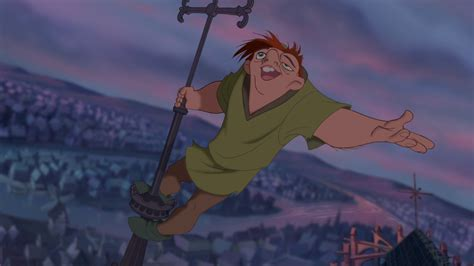
A couple of good resources on backstory and flashbacks
I’ve recently noticed that a lot of the fiction I’m reading this year is somewhat backstory heavy – I’m also nurturing a pet peeve about TV series which seem to need an obligatory “6 months earlier” episode around 3-4 episodes in. I confess/admit at least with TV series its not as riskier move as you can get away with episodic stories further removed from a main thread but my feeling is that these flashback episodes rely too heavily on your connection to the main story rather than necessarily being strong in themselves.
Anyway back to backstory – I figured I try to structure my rant a little into a proper blog, so I’m going to cover:
- What exactly is backstory and where (not joking) does it fit in a written story
- Some of the risks and my pet peeves of backstory
- Some interesting and out of pocket examples of good backstory
Part One
Backstory seems like something almost too obvious and straightforward to define, the term really just refers to everything / anything that happens before the “story” proper. Personally I think there is a potential confusion with flashbacks. To my mind because the narrative ‘flashes’ backwards the material within the flashback has a kind of Schrodinger’s narrative – where because it is part of the main story, and showing events in “real time” while being technically in the past, this means flashbacks are a sort of backSTORY. More on this later.
While creating narrative involves a lot of choices – backstory has got to be one of the more extreme areas where a writer has to choose what to include in their story and how. Especially given there is a lot of advice (that I agree with) suggesting that drafting and creating distinct backstory for your work and especially characters is a really useful plan to do, even if material isn’t ultimately included in the story the backstory still guides and influences your writing.
So what are the effects of backstory and how and why should you include it? The other very oft used backstory plot device is something often called a character’s “wound”. This is where something (or someone) has happened to a character (usually an MC) in the past that has given them their fatal flaw and the details of the main plot will be about the trails and tribulations of resolving this flaw. My understanding is that often the wound is placed in the backstory as this provides gravitas, an air of mystery or a sense of real change for the MC. My sense of the plot device is that you CAN certainly include a wound/flaw within the story-story however there is a certain power and timelessness to having the fatal flaw be placed in the “back” of the story.
Backstory, however, isn’t just about the dramatic. Backstory can be very effective in grounding the story and characters. People give Lord of The Rings a hard time for having a lot of backstory, however the deep history of the world seeps through the story and really creates a solid sense of Middle Earth being a real place, that we’re reading a history. You don’t have to match Lord of The Rings though, even small details can help keep a character relatable. The devil is somewhat in this case, in the details. One of the challenges of a writer’s choice is that the options really are innumerable. Backstory can literally just be told to the reader in the narrative, dialogue too, is another common device (although oft misused and included in cringe writing examples “as you know Bob… XYZ”
My advice in this arena is to balance backstory with your story-story. There is no magic ratio (I can’t even say more story-story than back, as I believe there are some excellent books which spend a lot of page-time in the past The Sense of an Ending springs to mind) however balancing the backstory with what you want your main narrative is not a too obscure task. If you want an action packed fast paced thriller, then backstory can be minimal OR perhaps used as a bit of a breather when you want the reader to have one.
As to what sort of information to include in backstory – this is much trickier and perhaps leans into the more artistic side of writing. There is after all almost ANYTHING you might include, the events of yesterday, high-school, childhood, depending on your characters age, the past epoch. Again matching seems wise (I confess to having to reread my last paragraph to remind myself what I was talking about now) when we’re talking about grounding we’re really looking at details that tell us about the character’s baseline, and usually the mundane details about the setting. (having dramatic and highly tense backstory is a thing I just don’t think it grounds the story.)
The final function of backstory (that I’ll mention not in the entirety of the topic) is of course to flesh out and add tensions to the story. This in my opinion is one of the more common uses, however is also potentially misused or ineffective at times. To contrast ‘grounding’ backstory to ‘tension’ backstory – tension is really details and information that makes something in the story-story more conflicted/tense. A rather trite and melodramatic one is when a story gives us some information about a characters home life – often family just before killing them off. The obvious device is to increase the impact of the death, and while that example is rough, it does provide a good launching board for other perhaps subtler effects. A good example is perhaps telling about a past conflict between characters to make their current interactions more tense without having to constantly show that in the present (hey I think I found can example of Tell don’t Show)
So I’m already starting to mention pet peeves so let’s move into risks
Part Two
I mentioned earlier being annoyed at some tropes I’m just going to rattle a few off:
- Mandatory flashbacks. I suppose a more accurate term would be arbitrary, but I feel like people do this because they feel they have to. This is when we go back in time to relieve and experience a characters past but there doesn’t appear to be any purpose. A good way to judge whether a flashback is needed is to consider whether the flashback contrasts or creates tension with the current narrative (a really good example of this is when a character is shown to be very different in the past narrative, not only is it a good story driver to make readers question why it can also add tension into the presence-narrative in a unique way)
- What a Twist! This is where backstory is presented entirely for the purpose of having a twist, e.g. the old friend or family member is the killer all along. I don’t actually think its that common but its something that stands out like a sore thumb.
- Wierdly irrelevant backstory. I’m kicking myself because I cannot for the life of me remember the book that did this, but I was bemused years ago by a novel that was heavy with sci-fi or fantasy elements but inexplicably chose to detail a lot of the MCs high-school life. And I don’t mean like, he first discovered vampires when he was 16, I mean like ‘I know we’re dealing with the fantastic in this book but don’t you want to know how MC did in HS???’
Actually I only really have 3 pet peeves it seems, I think my ire outweighed the numbers in this case. There are many risks worth mentioning in using backstory some which are obvious, and some I think are more nuanced.
- Boring making, and slowing down the story
- Confusing or muddying what the reader should be focusing on
- Alternatively making the plot too obvious (she’d hated Daniel since high-school, even more so now that he was hot and rich)
- Accidentally adding plot armour OR sucking the life out the tension of the book through what the backstory reveals
The last point has some subtle and unsubtle applications. For example its usually (confusingly) the backstory that might get spoiled or suffer because what we know in the present. A common one is when there are characters very present in the backstory but suspiciously absent in the present – it gives a rather “O gee I wonder what happens vibe” (as a bit of a side rant I think this is a commonly assumed “good” source of tension, e.g. knowing the what [Sally is going to die at some point] but not the how [I did NOT expect her to explode colourfully in a freak spray paint explosion!]. This can be a good source of story tension however it can also be tropey, e.g. being a source of ‘fridging‘ [where a character, often female, only exists to suffer through the lens of the MCs experience).
The opposite is when backstory actually puts the reader too much at ease, an MC is revealed to have been hyper-competent and encased in plot armour before the story even started??
Part Three
So rant out of the way, when I thought about this topic I realized there are some really clever and interesting use of backstory:
If we go back to Lord of the Rings, I realized a unique use of backstory. While I mentioned this seminal tome already for its grounding/world building I wouldn’t necessarily say character backstory is hugely prominent (just to be clear I mean in the narrative sense, despite being possibly one of the most fleshed out Fantasy Worlds in existence, the actual text Lord of the Rings isn’t drenched in backstory itself) for example Frodo’s story is largely story-story. However there is one character whose backstory is super important, and it was one of the most surprising creatures…
Gollum.
Sméagol’s role in Lord of the Rings is not only prominent and vital, its also complex, including both a redemption AND relapse arc. This is only made possible through the detailed and varied backstory of our favourite CGI guy which adds a lot of depth to the tension we feel reading his sections.
It also provides a comparison and contrast to Frodo’s journey. Writing this makes me realize that another guide to backstory is having the right characters in place to tell a good story!
Another fascinating use of backstory is to play with unreliable narration. In The Sense of an Ending (spoilers) we are given a strange a story from the perspective of the narrator, and its only when physical evidence – an actual letter he sent in the past – in the story-story is revealed to we find out he’d been particular nasty in said letter, a detail left out of the narration. This is a strange and interesting use of backstory as something which is going to be discounted, this is great for twists as its not likely something that a reader will pickup on, but nor does it feel like a gotcha! type twist.
This brings us to the end of my rant/blog post. I’d be really interested in other examples of intriguing and unique use of backstory – and as always I’m super keen to hear other people’s pet peeves!!
Weekly Writing Roundup 19.4.24
Today an odd reflection on online communities, Sneezing, pro-tips on queries, a critique on Stephen King’s On Writing, and a laugh from Tom Gauld

The internet is quite the double edged sword for writers. I do think more beneficial than not – but with some strange catches. Something I noticed with online communities is you get a sort of “lifecycle” that kinda goes like so: writers get together and share knowledge > after a while older writers start to get annoyed with new writers > oldies split off into a ‘mature’ forum > the mature forum is fine but kinda quiet especially as the older writers realize the real forum should be their own writing.

I realize that’s kinda cynical and I don’t think its happens all the time, but just an observation.
imho the sneeze is too quiet. MORE SNEEZE
Just a nice down to Earth video on querying. I wouldn’t say anything that will blow your mind, but definitely some sensible points (especially remembering agents are people). I think guides like this are good for reminding writers that agents aren’t Pop Idol judges, they aren’t strictly gatekeepers for your publishing deal.
I was a little unsure about this video – concerned it might be a pit of negativity on a very popular book – but I actually agree with the key critiques. Just because someone has legendary success don’t necessarily mean they know what OTHERS need to get to success.
Now I’m going to confess to something cheeky, I didn’t get through the whole video, so I can’t comment on the nitpicky details. IMHO the main thing with ‘on writing’ books is to read and reflect on many sources. Certainly don’t avoid King’s book but some good cautions here.
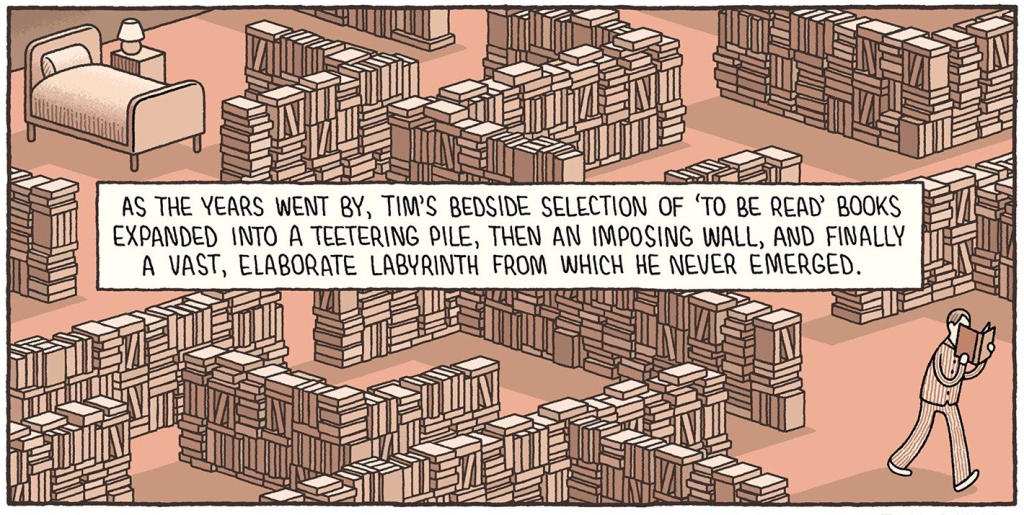
Just to prove I’m not completely slack I’ve done this one on Friday, before the weekend! It seems the things I want to write about are building up like a to-do list…

I haven’t even reflected/reviewed Discworld – even though it seems a long while since I finished Shepard’s Crown.
(ARC) Review: Root and Bone
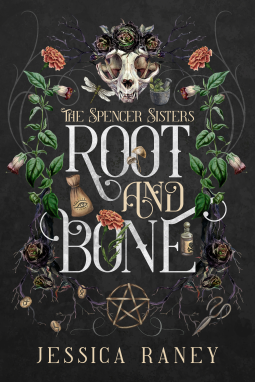
Honestly this is going to be one of those tough reviews. Root and Bone is one of those books with a lot good about it – but also some flaws, and I’m having trouble synthetizing the goods and bads together, so I’m just going to lay them down and express my person response to the book at the end.
The goods:
The pacing of Root and Bone is fairly cracking, and in a good way. It does go somewhat from whoa to go, with perhaps a few early chapters warming us up, but by about 1/3 and definitely by halfway through, the speed of the story was racing and it sat well for an action packed tale.
In terms of the lore and magic, this was a very hard hitting and at times pulling no punches type approach. It’s the sort of fantasy that I would really enjoy as a teen or young adult as it has a sort of no-holds barred violent approach to urban fantasy, it reminded me a little of early Anita Blake novels.
The MCs (not their husband btw) love interest was actually kinda powerfully written, I’m not usually one to be looking for a romance storyline, but the situation of Root and Bone was intriguing enough (albeit I’ll mention some problematic type stuff later).
Finally even though the setup of the book kind of made it seem like something obvious would happen (e.g. one of the main threads was that Leona has a ‘dark whisperer’ e.g. an evil voice telling her to unleash black magic and just go ballistic on everyone – it seemed like an obvious setup that eventually releasing the power would save the day) however the story did make things more complex than that.
The bads
Hmmm. The first issue that sprung up for me is that the presentation of the story is very 1-dimensional and fairly melodramatic. This isn’t really a book for subtlety and it does have at moment those times (even in an urban fantasy) where people interact in ways that just isn’t very realistic. The first example is the MCs sister Jewel is essentially a bit of a flirt about town and this is shown to us by Jewel doing her thing in the local bar and men are literally hooting and gasping en-mass. There are countless other examples, violent men are violent, sanctimonious older sister is sanctimonious and so on.
On that note, I struggled with the juxtaposition of abuse in this story. Within the first few pages we are quickly introduced to both Leona’s and Jewel’s Husbands being physically abusive. When you combine this complication with the issue in the above paragraph – everything being fairly 1-dimenional – this creates a very strange mood for this book. Leona’s presentation is a capable and powerful witch, in fact we are shown her using magic to control her husband almost as comic relief (he makes him poop himself). It sort of makes sense because abuse can occur to even the most capable and successful of people, however on the other hand the issue of the abuse and the main plot only cross over as they are both happening to her (I suppose you could say the main plot issues and the relationship are thematically linked by evil men but thats about it). This culminated in what were IMO very bizarre choice with Leona’s daughter Peggy. Leona does not treat her daughter well, AT ALL, and its not presented as a comment on the above issues – e.g. its not portrayed as part of relationship abuse OR perhaps as a consequence of what else is going on, Leona is just straight up abusive to her daughter.
As a flip side to the fast pace and heavy action, this story could be considered quite juvenile. Characters say what they think, and do what they say. Bad guys are beyond redemption, Goodies are a bit more complex but lacking narrative threads between their good and bad points.
So my overall response is that I actually enjoyed Root and Bone quite a bit. Despite some major WTF moments I had fun and genuinely read through the book wanting to find out what lay ahead. The flaws mentioned above did sit extremely weirdly for me and I feel like for many readers this book might be a little too much.
Weekly Writing Roundup 14.4.2024
I’m tired this week so you are just getting memes and nice pictures…




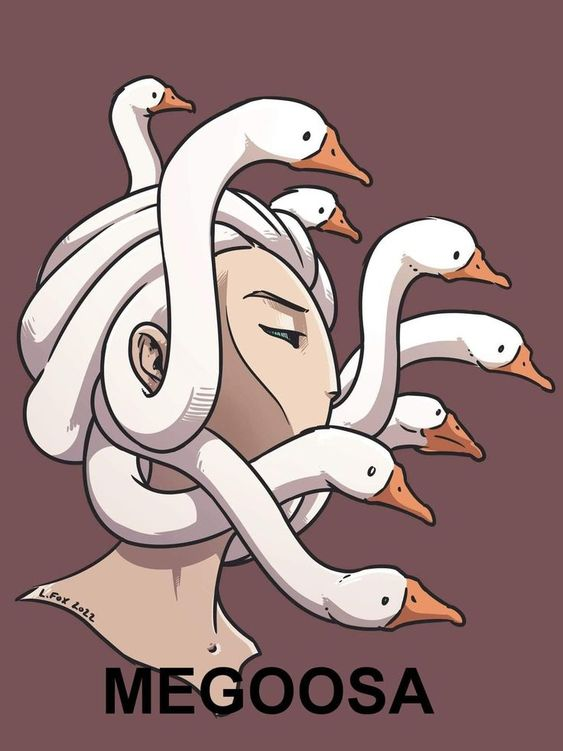






Hopefully I’ll be a bit more awake next weekend (laughs in adulting)